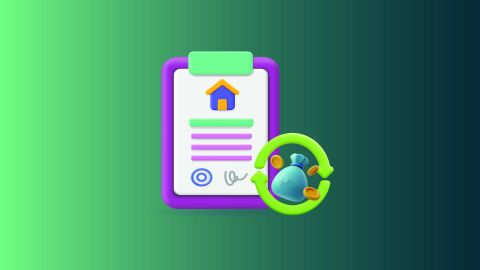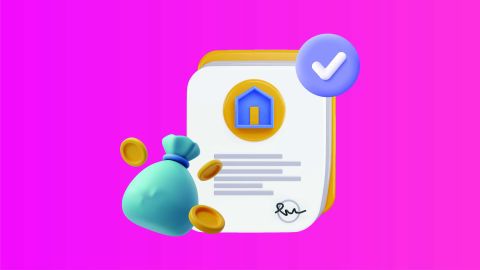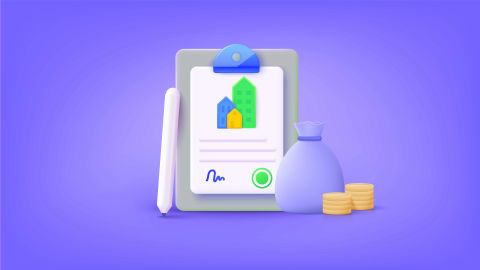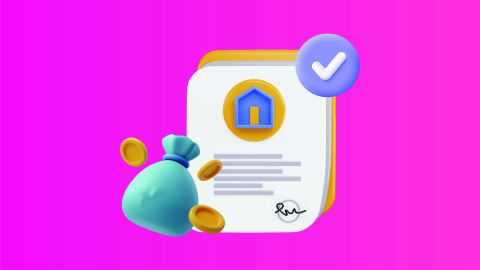Frequently asked questions
You can use the fastest loan against property from Bajaj Finserv to fulfil all your financial obligations and also enjoy loan disbursement in 3 days*.
As a self-employed borrower, you can use your loan for the following purposes:
- Business expansion
- Operation usage
- Debt reconciliation
- Purchasing raw materials
- Making new investments and personal use
As a salaried individual, you can use your loan for the following purposes:
- Mortgage buyout/ Balance Transfer of existing loan
- Consolidation of debt
- Managing wedding expenses
- New investments
- Financing education
Bajaj Finserv calculates your eligibility for a loan against property by taking into the following parameters in account:
- Age
- Income
- Property value
- Existing obligations, if any
- Stability or continuity of employment/ business
- Past borrowing track record
Yes, your property needs to be insured for fire and other calamities during the tenor of your loan. You will have to provide proof of insurance to Bajaj Housing Finance Limited every year or whenever required.
You need to ensure that the title of the property is clear, free of any litigation, and should not have an existing mortgage or loan.
Yes, you can. All the co-owners of the property will be considered as co-applicants of the loan.
The process of disbursement is as follows:
- Submission of paperwork
Submit documents (see ‘Eligibility & Documents’ page for details) as per the requirements - Sanctioning of loan
Your creditworthiness is calculated by Bajaj Housing Finance Limited, based on your income, age, employer or firm with whom you work, and CIBIL report. If you are self-employed, your nature of work, bank statements, and CIBIL report is studied. This helps us plan the maximum loan amount that we can offer you. You are then issued a loan sanction letter - Acceptance of loan
If you agree with the terms and conditions of the loan, submit a signed duplicate copy of the loan sanction letter - Disbursement of loan
The loan will be disbursed once all relevant papers of the property have been verified, all pertinent documents have been submitted, and the loan agreement has been executed
Your EMI consists of two parts, the principal amount you have borrowed, and the interest charged on it. Three factors affect your EMIs: how much you borrowed, the rate of interest applicable, and the loan tenor. You can compute the amount of your monthly instalment by using the EMI Calculator and enter the three values applicable.
Remember, you can bring your EMI amount down in a few ways. Your EMIs decrease if there is a reduction in the interest rates. Your EMIs also decrease when you make part-prepayments.
You can easily increase the amount you pay in EMIs in the following ways:
- Login into the customer portal, Experia and choose the applicable option
- Visit this website to contact us
- Call us on 020 3957 4151 (call charges apply)
An amortization schedule is a table that offers you a view of how your loan amount is repaid via monthly instalments. It gives the break-up of every EMI (with its principal and interest component) towards the repayment of your loan.
When interest rates go up, the interest component of your EMI also goes up. The EMI amount is kept constant, but this will result in a lower principal component. If the rates move up continuously, then there may be a situation where the interest component becomes more than the EMI. In such a situation, the principal component (EMI minus interest component) gives a negative figure. Consequently, the outstanding balance, instead of being reduced from the opening principal with the principal component, gets increased with the negative principal component. This is commonly referred to as negative amortization.
A loan where the amortization is negative does not get repaid, since the regular payments are insufficient to cover the interest component. The unpaid interest gets added to the principal and makes it grow. The situation gets reversed only when interest rates start falling. In this situation, the customer must part-prepay the loan amount, increase the EMI of the loan, or do both.
In case of a loan with a floating interest, the interest component is subject to change. When the rates change, one of the following two changes can be done to the loan:
- The term of the loan is extended (when rates go up) or contracted (when rates go down)
- The EMI amount is reset (increased in case rates go up and reduced in case rates come down)
As a practice, the loan term is extended since the customer usually gives post-date cheques and it is difficult to replace them during every rate change. However, in case of under-construction properties, the pre-EMI amount is increased by default.
You can choose any of the above options according to your convenience.
The pricing increase happens only in the scenario of an increase in the cost of funds. Pro-active repricing policy is being put in place as a proactive measure to ensure that there is no inordinate increase in your loan pricing against new acquisitions and there is always parity for your loan.
As a goodwill gesture and to maintain transparency with our valued existing customers, Bajaj Finserv ensures, through our pro-active downward re-pricing strategy, that none of our existing customers are more than 100 bps over and above the last 3 months average sourcing rate.
If a customer is higher than 100 bps from our last 3 months average sourcing rate, we carry out downward re-pricing of the rate of interest for all such customers to bring them to max 100 bps above the last 3 months average sourcing rate. This is a bi-annual exercise. This is yet another industry-first activity.
A property dossier is another industry-first, value-added service we offer to our mortgage customers. It is a customised report that guides you through all legal and technical aspects of owning a property in a simple and crisp manner. It also covers general property knowledge tips as well as all macro factors like property index of the city, important property tips, and more.
You can avail a loan against property for the following:
- Self-occupied residential
- Rented residential/ commercial
- Vacant residential/ commercial
- Shared property
You cannot avail a loan against property for the following:
- Plot
- Property outside city/ municipality limit
- Property with tenants for more than 5 years (with no renewed rent agreement)
- Property with structural flaws that requires substantial repairs
- Property constructed on agricultural land/ farm land
- Illegal properties
- Property already mortgaged with other banks
- Residential property used for commercial purposes without approval from competent authority
- Under-construction property except NRP transaction
- Industrial property
- Schools or hostels
- Hotel
The TAT for the issuance of a foreclosure statement is typically 12 working days.
For such matters, you can escalate the issue to the concerned person as mentioned below:
Product |
Contact Person |
Mobile Number |
Email Id |
Home Loan (North West) |
Jaspreet Chadha |
9168360494 |
jaspreet.chadha@bajajfinserv.in |
Home Loan (South East) |
Francis Jobai |
9962111775 |
francis.jobai@bajajfinserv.in |
Rural Loan |
Kuldeep Lowry |
7722006833 |
kuldeep.lowry@bajajfinserv.in |
Loan Against Property |
Pankaj Gupta |
7757001144 |
pankaj.gupta@bajajfinserv.in |
Lease Rental Discounting |
Vipin Arora |
9765494858 |
vipin.arora@bajajfinserv.in |
Developer Finance |
Dushyant Poddar |
9920090440 |
dushyant.poddar@bajajfinserv.in |
Professional Loans |
Nirav Kapadia |
9642722000 |
nirav.kapadia@bajajfinserv.in |








